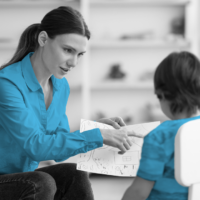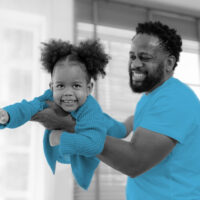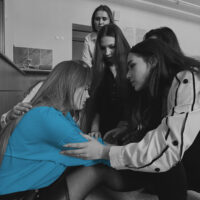Adverse Childhood Experiences (ACEs) are defined as situations that lead to an elevated risk of children and young people experiencing damaging impacts on their health and other social outcomes across the life course.
ACEs – Adverse Childhood Experiences
-

The development of Paediatric and Child Health approaches to Trauma Treatment and Resilience
This free webinar is open to all, and is organised by ACAMH’s Adverse Childhood Experiences (ACEs) Special Interest Group. The webinar will be led by Heather Forkey and Jessica Griffin from the Department of Pediatrics, University of Massachusetts.
- Location
- FREE live stream
-

Preventing Sexually Harmful Behaviour of young people – introducing the ‘Inform and the Shore’ initiative
This free webinar is open to all, and is organised by ACAMH’s Adverse Childhood Experiences (ACEs) Special Interest Group. The webinar will be led by Laura Nott with a talk on ‘Preventing sexually harmful behaviour of young people – introducing the Inform and Shore initiatives and findings from our action research in schools’.
- Event type
- FREE live stream
- Location
- FREE live stream
-

Bullying and Victimisation and the link with Adverse Childhood Experiences – recording
This webinar was is organised by ACAMH’s Adverse Childhood Experiences (ACEs) Special Interest Group. The webinar was led by Nora Trompeter, University College London, presented an overview of research on bullying and victimisation, and how this impacts adolescent internalizing and externalizing problems. Slides About the webinar Both adverse childhood experiences and bullying victimization are linked […]
Read more -

Understanding and supporting children looked after and adopted children
It is recognised that the children looked after population is often on clinical caseloads, yet there appears to be little discussion around both the impact of their early life experiences on their neuropsychology, and the practical aspects of working with this specific population due to this. This webinar will focus on the mental health of children looked after and adopted children.
- Event type
- Webinar
- Location
- LIVE STREAM
-

Stress and mental health presentations in secondary school-aged young people – recording
This was organised by ACAMH’s Adverse Childhood Experiences (ACEs) Special Interest Group, and was led by Dr. Ruth Blackburn and Sorcha Ní Chobhthaigh from UCL Great Ormond Street Institute of Child Health present research on mental health in secondary school-aged young people.
Read more -

Mental health and care-experienced young people: are our mental health support services appealing and accessible?
Children in care are much more likely to experience mental health problems than young people in the general population. Early life experiences, such as abuse, neglect, parental drug-use or violence likely play a major part in this. So too could the instability that is often inherent in the care system.
Read more -

Adverse Event Monitoring and Reporting in Studies of Pediatric Psychosocial Interventions
In this Papers Podcast, Kalee Lodewyk discusses her CAMH journal paper ‘Adverse event monitoring and reporting in studies of pediatric psychosocial interventions: a systematic review’. Kalee is the lead author of the paper.
Read more -

Bullying and Victimisation and the link with Adverse Childhood Experiences
This free webinar is open to all, and is organised by ACAMH’s Adverse Childhood Experiences (ACEs) Special Interest Group. The webinar will be led by Nora Trompeter, University College London, who will present an overview of research on bullying and victimisation and how this impacts adolescent internalizing and externalizing problems.
- Event type
- FREE live stream
- Location
- LIVE STREAM
-

Connecting the dots around unusual and distressing sensory experiences – recording for members
Free for members. This webinar and Q&A will looked at a range of projects to explore the breadth of lived experiences around unusual and distressing sensory experience to explore research priorities with young people, parents/carers, and important adults in their lives, such as teachers and mental health professionals.
Read more -

Connecting the dots around unusual and distressing sensory experiences – recording
Delegates only. This webinar and Q&A will looked at a range of projects to explore the breadth of lived experiences around unusual and distressing sensory experience to explore research priorities with young people, parents/carers, and important adults in their lives, such as teachers and mental health professionals.
Read more